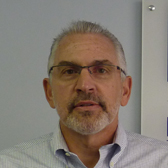Technology Yes! BUT: Human Skills That Add Value To Management Consulting

Written by: Robert Richardson
Momentum, Inc. celebrates over twenty years of success in delivering management consulting services that have resulted in significant achievements for our clients. Momentum accomplishes this through highly skilled and competent consultants whose experience is vast and whose knowledge and skills around the best practices of information technology, analytic tools, planning theories and change management techniques excel. Yet, underlying the successes of Momentum’s history are critical ‘human skills’ practiced by Momentum consultants as they engage with clients.
Any successful consultant will tell you that as necessary as being certified and experienced in the latest technology, techniques, and practices, management consulting is always about engaging with clients, engaging on a human level with human beings. Working with human beings can be challenging, especially if the goal of the engagement is change and improvement, venturing into new territories and wading into fresh waters. Human skills, practiced by a consultant in the execution of technical processes, are very often an underlying key to successful outcomes. Momentum, Inc. strives to provide opportunities for its consultants to develop their skills, human and technical, in efforts to bring quality and value to clients who engage Momentum’s services.
In his book “Getting Naked: A Business Fable,”[i] Patrick Lencioni, author and president of The Table Group, a management consulting firm, reflects on what he defines as “naked service” as he advocates for consultants to embrace the “naked” approach in their service to clients. The “naked service provider” is the consultant that is highly skilled in the ability to be “vulnerable – to embrace uncommon levels of humility, selflessness, and transparency for the good of the client.”[ii] The qualities of humility, selflessness, and transparency could also be described as ‘human skills.’ One might ask, are these really ‘skills?’ Vulnerability, humility, selflessness and transparency defined as ‘human skills?’ Yes! Like other skills, including technology, these ‘human skills’ can be acquired, learned, practiced and grown. In doing so, these ‘human skills’ add value to the technical work of the consultant and also to the outcomes for the client.
Mr. Lencioni asserts that embracing these skills (i.e., practicing them) is no easy endeavor. He states that the skills of humility, selflessness, and transparency are often avoided because they entail suffering and pain. He asserts that most people try to avoid awkward and painful situations. Management consulting professionals are not immune to this avoidance yet avoiding unpleasant situations in our work can have detrimental effects. Embracing them, with learned and maturing skills, can build relationships and loyalty with clients.
Lencioni identifies three fears that consultants are susceptible to as they engage with clients: Fear of losing business. Fear of being embarrassed. Fear of feeling inferior. When we act (or work) out of these fears, we avoid situations that should be addressed for the good of the client. Consultants (and indeed all people) can learn to become aware of fear as they engage in their work. Awareness itself is ‘human skill’ that can be practiced and can mature.
According to the author, “fear of losing business” tempts the consultant to act to preserve their job at any expense but often results are counter-productive. Acting out of fear of losing business breeds results that erode the trust of the client. Rather, a “naked service provider” is not overly concerned about the possibility of losing an engagement, and is willing to be frank, honest and direct with the client, even if it jeopardizes the job or the relationship. Consciously, and skillfully, they make themselves vulnerable, after discerning that avoiding the issue is detrimental to the client, and they address the issue. However, there is a risk. Exposure of one’s vulnerability, which could be risky personally and professionally, to address a vital issue, however, is more likely to breed positive results and earn client trust. Acting out of fear, or, more accurately, avoiding the situation, is more likely to repel the client.
Lencioni identifies the second fear that consultants are susceptible to as “fear of embarrassment.” Hired to provide services to a client, on behalf of a company whose mission it is to assist clients in achieving success, a consultant naturally wants to be perceived as competent and knowledgeable. However, no consultant has all the answers or insights to a client’s needs, no matter how smart, skilled or experienced a consultant is. Fear of embarrassment, this author states, is rooted in intellectual pride and is “ultimately about avoiding the appearance of ignorance, wanting to be seen instead as smart and competent.”[iii]
Do you remember sitting in class as a child and not raising your hand to answer a question because you were unsure if your answer was correct? Perhaps as you sat, you waited for another ‘victim’ to raise their hand and respond; when they answered, their response was wrong. You didn’t raise your hand, and the response you were mulling was the correct one! But you were afraid that you might be wrong! Embarrassment is a fear we all share. Please, think back again. Often a person who risks answering a question even if they are not entirely sure of the answer, and are wrong, demonstrate that they are engaged and interested in the topic at hand. They are rarely ridiculed for being wrong. Although the person that doesn’t raise their hand yet is on topic and has the correct answer mulling in their mind may be actively engaged and very smart, fear of being embarrassed by the possibility of being wrong stymies them.
Consultants who are aware of their fears of being embarrassed and can lay those fears aside and be open and honest with clients build a relationship of trust with a client. Again, awareness is a human skill, a practice that can be learned and a skill that can mature. Using the analogy of the “naked service provider” such consultants, Lencioni states, “are so concerned about helping a client that they are willing to ask questions and make suggestions even if those questions and suggestions could turn out to be laughably wrong. They readily admit what they don’t know and are quick to point out – even to celebrate – their errors because protecting their intellectual ego is not important to them.” Such a consultant is likely to build a relationship of trust with a client, as the client observes that the consultant does not “hold back their ideas, hide their mistakes, or edit themselves in order to save face.”[iv]
The third fear consultants are susceptible to is the “fear of feeling inferior.” Training, skill, experience, and certification contribute to a sense of worth and standing in any profession, including the consultancy. As service providers, consultants bring vast experience and certifiable skills and knowledge to the client. Lencioni notes that “it is completely natural for service providers to yearn for respect and admiration” from the client.[v] Yearning to be acknowledged and respected for talents and value is a common human desire. Yet, in a client-service provider relationship, the consultant can (and does at times) experience being perceived as “less important” or “inferior” to the client than the client’s employees.
Fear of feeling inferior can cripple the client-service provider relationship, especially if the consultant is unaware of such feelings and fear, and acts from those perceptions and emotions. Lencioni states “it is no surprise that, as consultants, we try to achieve and preserve a certain level of standing and importance in the eyes of our clients.”[vi] Rather than acting out of fear and boldly asserting one’s ‘importance’ and ‘value,’ the “naked service provider” operates out of a “skilled-awareness” of the reality that as a consultant they are, in fact, a “service provider.” Working to overcome their need to “feel important” in the eyes of their client, “they purpose-fully [skillfully, with intent and awareness] put themselves in a lower position. They do whatever a client needs them to do to help them improve, even if that calls for the service provider to be overlooked or temporarily looked down on.”[vii] This conscious and altruistic action on the part of the consultant is not self-denigrating. Quite the contrary, this is the human skill of humility. As Lencioni remarks, “there is nothing more attractive and admirable than people who willingly and cheerfully set their egos aside and make the needs of others more important than their own.”[viii] And clients notice!
Momentum hires and maintains the right employees to deliver innovative and adaptive solutions by partnering with our clients to help them operate their organizations more efficiently to achieve service excellence, enabling both our clients and our employees to focus on growth. Momentum seeks and employs people who are technically competent, but equally important, who have the human skills to understand the importance of building honest, collaborative relationships with clients, business partners, colleagues, and the community. Momentum prides itself on being a group of flexible, well-rounded consultants who are responsive to our stakeholders and demonstrate a willingness to help others do great things.
References:
[i] Lencioni, Patrick, Getting Naked: a business fable about shedding the three fears that sabotage client loyalty. San Francisco: Josey-Bass, 2010. Print
[ii] Lencioni, p. 197
[iii] Lencioni, p. 199
[iv] Lencioni, p. 199
[v] Lencioni, p. 199
[vi] Lencioni, p. 200
[vii] Lencioni, p. 200
[viii] Lencioni, p. 200
Robert Richardson – Consultant
 Mr. Richardson brings over 35 years of experience in administration, planning, management and leadership. He has a strong track record of working as a successful management professional with excellent public administration, fiscal, communications, problem-solving, interpersonal, public relations and communication skills. This unique combination of attributes enables Mr. Richardson to gain trust and make strong professional relationships with stakeholders and decision-makers at all levels of an organization, making him a strong asset to any project team.
Mr. Richardson brings over 35 years of experience in administration, planning, management and leadership. He has a strong track record of working as a successful management professional with excellent public administration, fiscal, communications, problem-solving, interpersonal, public relations and communication skills. This unique combination of attributes enables Mr. Richardson to gain trust and make strong professional relationships with stakeholders and decision-makers at all levels of an organization, making him a strong asset to any project team.
 Tap to email
Tap to email
